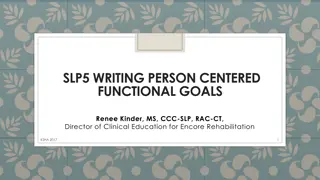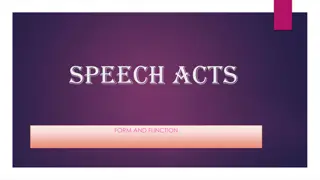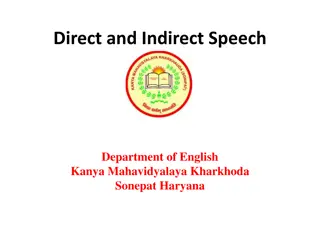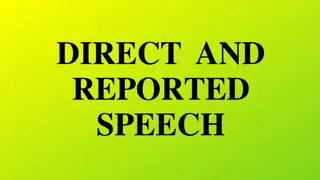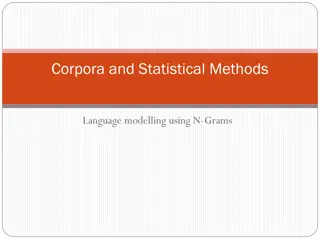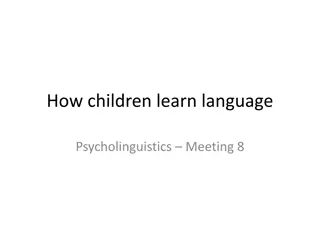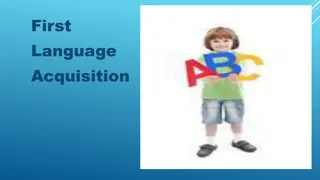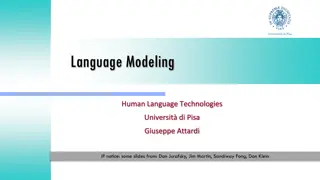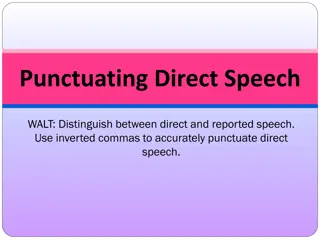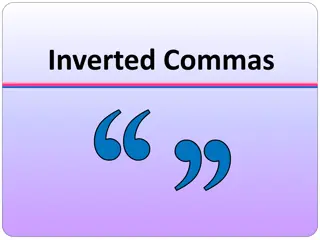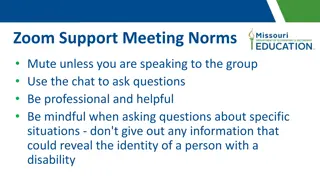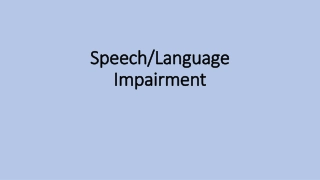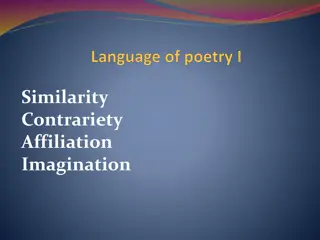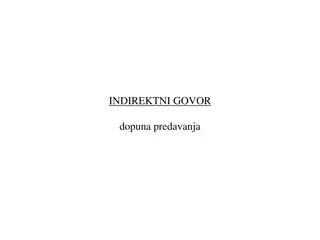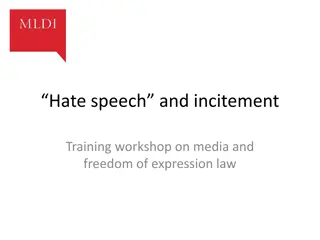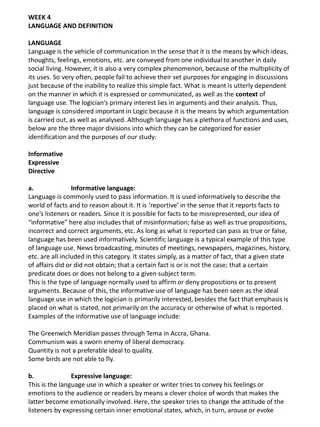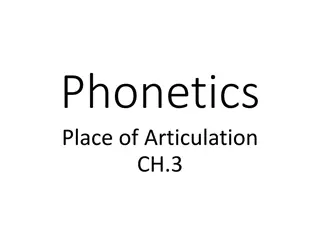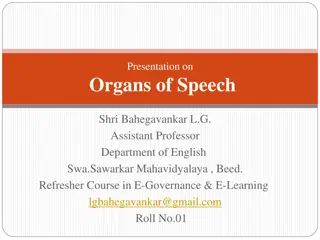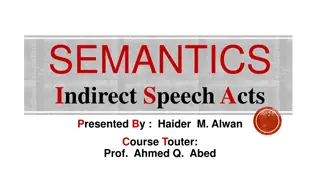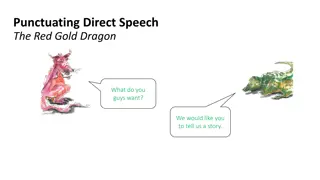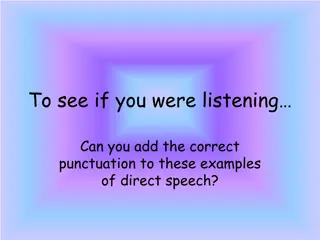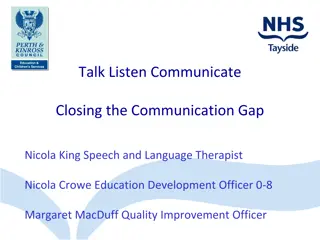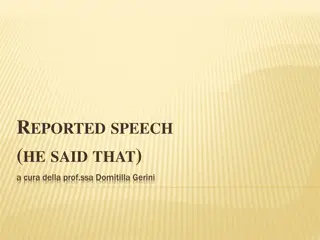Everyday Ideas for Enhancing Speech and Language Skills
Discover creative activities to boost vocabulary, memory, understanding, literacy, and expressive language skills in children. From grouping and naming exercises to memory games and literacy techniques, these daily ideas aim to make learning language fun and engaging.
Download Presentation

Please find below an Image/Link to download the presentation.
The content on the website is provided AS IS for your information and personal use only. It may not be sold, licensed, or shared on other websites without obtaining consent from the author. Download presentation by click this link. If you encounter any issues during the download, it is possible that the publisher has removed the file from their server.
E N D
Presentation Transcript
MEATH SPEECH AND LANGUAGE THERAPY SERVICES Everyday Ideas for: Vocabulary Grouping: Tidying up creates a natural opportunity to group e.g. put the clothes in a pile, the vehicles in the box and the animals in the drawer. Naming within groups: Name a group and ask your child to name as many things in the same group as they can e.g. hyena- it s a wild animal- name some other wild animals.. Verbalooza! Pick an item in the room/in a book and name as many different actions that can be done with the item (act it out if stuck for the word) e.g. ball Describing/Guessing: Pick an animal, food, vehicle etc and describe it until someone can guess what it is. Reading: Your child s school books are full of new vocabulary. Pick a new word and talk about what it means, what group it is in, what it looks like, where you find it, what it does etc. For new action words- act it out and make it memorable! ..an animal, it s big and grey and lives in the zoo.. has a trunk I can kick, bounce, roll, throw, catch... Lion, wolf cheetah
MEATH SPEECH AND LANGUAGE THERAPY SERVICES Everyday Ideas for: Memory and Understanding Visual Memory: Lay out a few things on a tray for your child to look at. Then ask your child to look away and take away/change something on the tray. Look again. What is different? Auditory Memory: Play a shopping game. Use objects in the room e.g. get me the cup, the ball and the green book . Add more items as able. Concepts: Your child s books (especially Maths) are full of concepts. Add the new concepts into yourplaye.g. top, bottom, middle- build a tower with Lego Listening for details: Look at busy pictures in books and ask your child to listen carefully to what they must find e.g. find something that is wooden, long and for sleeping. Reading: Ask questions after every few lines to make sure the text was understoode.g. Jack went to the market to sell his cow . Who went? (Jack), where to? (the market) etc. Red at the top, blue in the middle 1 2
MEATH SPEECH AND LANGUAGE THERAPY SERVICES Everyday Ideas for: Literacy Alliteration: Draw attention to repeated sounds in your child s school reader. Make up your own silly sentences or stories with repeated sounds. Syllables: Take note of tricky long words in your child s reader and help them clap out the syllables. How many claps until the word is finished? e.g. gigantic Rhyming: Draw attention to rhymes in books and swap them with your own. The sillier the better. Pick a word and see how many rhymes your child can come up with. Isolating or changing sounds: Use any room available. Ask your child to: E.g. 1- find something that starts/ends with b E.g. 2- find something that sounds like boat but change the b to c . (Sound not letter!) Keep it Multisensory: Use as many senses as possible when reviewing sounds. What does it sound like? look like? feel like? (to say). Do the actions, sing the songs, draw the sounds in sand etc. Busy bees blowing bubbles gi- Cats eat boat coat! Hats! gan- tic
MEATH SPEECH AND LANGUAGE THERAPY SERVICES Everyday Ideas for: Speech and Expressive Language Model: When you notice an error in your child s speech/grammar, repeat what they said using the correct pronunciation or form of the word.. Use Visuals: Use a mirror if your child struggles with certain sounds. Sit side by side so they can make their movements match yours. Break down- Build up: Break down tricky longer words into syllables. Tap or clap out each syllable and gradually build the word up faster. Expand sentences: Repeat what your child says but expand on their sentence- adding new words. Expand vocabulary: Repeat what your child says and add more words that mean the same thing. Choose a word in the reader- how many synonyms can you come up with? It was on the chair! Watch me hos- Great, amazing, fantastic, awesome The bider runned off pi- On the long, green, comfortable chair? tal Yes the spider ran off...
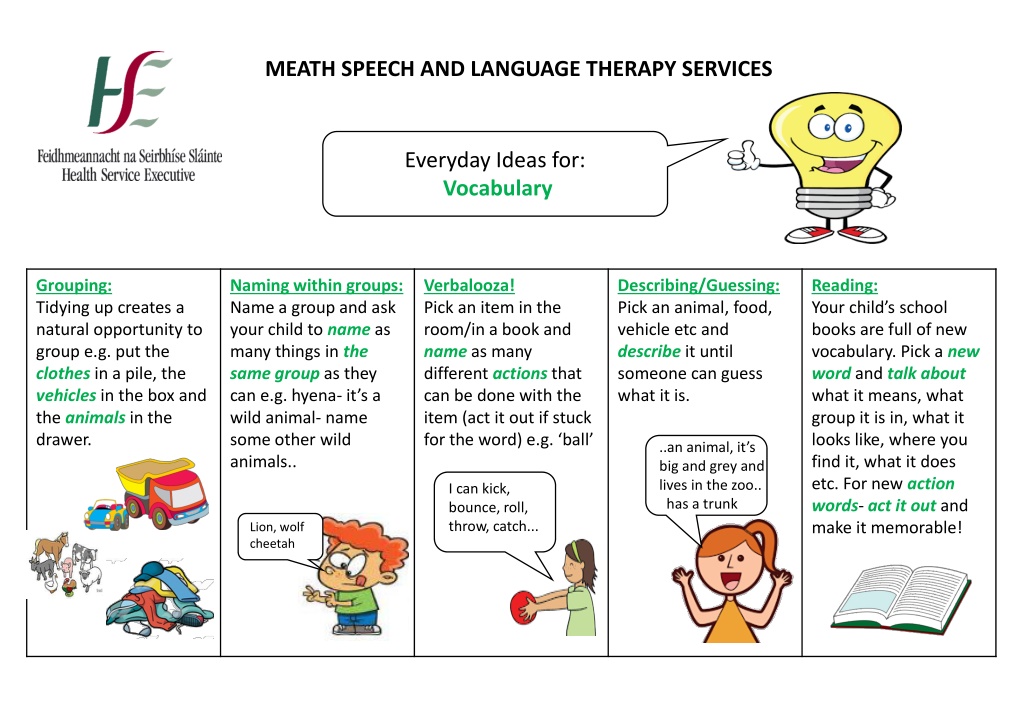

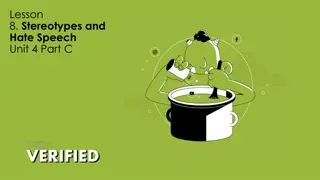

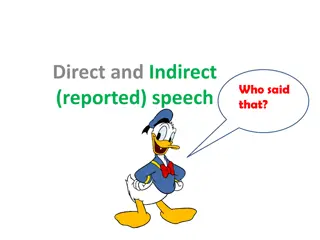


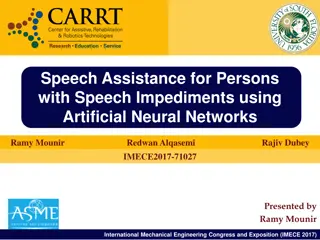

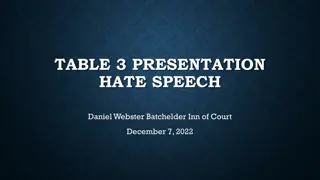

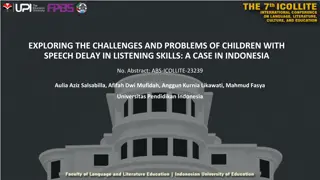
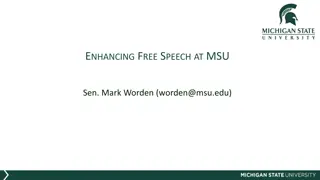
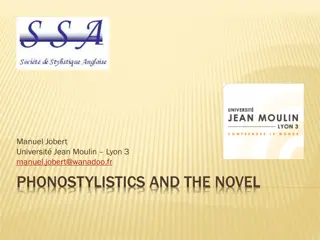

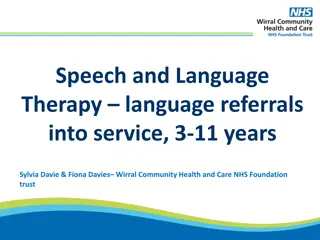

![Prevention and Combating of Hate Crimes and Hate Speech Bill [B.9B.2018]](/thumb/60513/prevention-and-combating-of-hate-crimes-and-hate-speech-bill-b-9b-2018.jpg)
